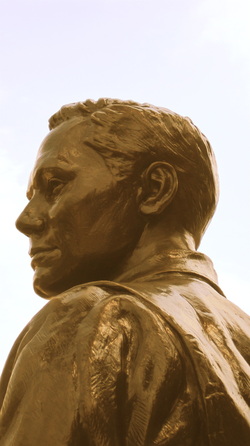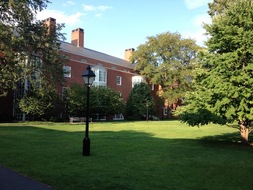Lesson One: "You can't connect the dots looking forward; you can only connect them looking backwards." Jobs described how a calligraphy class he just happened to take at Reed College, after he had dropped out, influenced the design of the Mac. You never know how your experiences and knowledge you learn today are going to shape events in your future. In my opinion this underscores the value of life long learning and an education grounded in the liberal arts and sciences. It also underscores the importance of relationships and how one comes at the world. You never know whom you will meet again and under what circumstances. "It's a small world after all." Every experience holds within it the possibility for growth.
Lesson Two: "The only way to do great work is to love what you do. If you haven't found it yet, keep looking. Don't settle. As with all matters of the heart, you'll know when you find it." I think the key is the last sentence. True, pursue what you love, pursue what you enjoy, and let the rest follow. And it probably will -- but not always. Jobs talks about being fired from Apple but the real lesson is how he gave it meaning, embraced the "lightness of being a beginner." Jobs knew what it is like to be downsized but he continued to pursue things he loved and the rest is history. Even in positions that may not be the perfect person-job match we can find tasks, projects, activities that allow us to have moments of satisfaction, even great satisfaction. Celebrate those moments.
Lesson Three: "Live each day as if it were your last" -- because one day it will be. Jobs discussed death and the finality of time. Make each day count. As one who has already been within hours of his last breath, I can relate. Jobs said it so well:
"Your time is limited, so don't waste it living someone else's life. . . Don't let the noise of others' opinions drown out your own inner voice. And most important, have the courage to follow your heart and intuition. They somehow already know what you truly want to become. Everything else is secondary."
I would add, hug those you love. You never know when it might be the last one.



 RSS Feed
RSS Feed